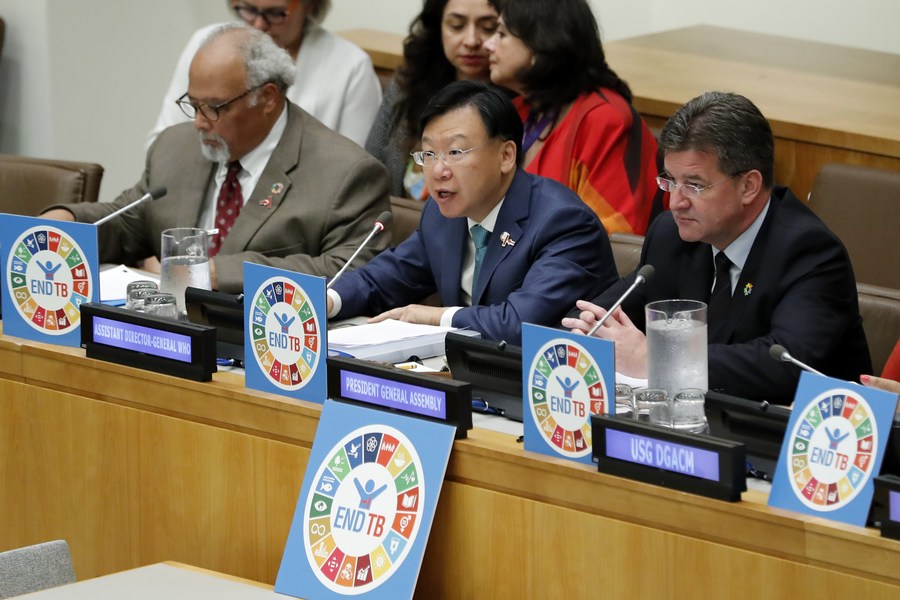
The headquarters of the World Health Organization in Geneva, Switzerland. /Xinhua
The headquarters of the World Health Organization in Geneva, Switzerland. /Xinhua
China has made great contributions to the world in the public health domain, Ren Minghui, assistant director-general of the World Health Organization (WHO), has said.
"Many of China's early experiences in public health, for example, the barefoot doctors and primary healthcare policies and plannings, have been recognized by the World Health Organization, as well as the international community," said Ren, the WHO's assistant director-general for universal health coverage and communicable and noncommunicable diseases, in a recent interview with Xinhua.
"China's contributions in traditional medicine have also been accepted by the WHO and many more countries and have been incorporated into the WHO strategies, with more and more countries actively considering incorporating them into their formal health service systems," he said.
He added that China's work in the prevention and control of infectious diseases, such as polio, malaria, lymphatic filariasis, trachoma, etc., has reached the goals of the WHO's strategic plan for the elimination or eradication of infectious diseases.
Ren said China and other countries are facing many common public health problems, such as unbalanced distribution of health resources, insufficient technical personnel and lack of medicine and healthcare. However, China is gradually solving these problems through efforts, and its successful experience can be taken as a reference for other countries.

Ren Minghui (C), assistant director-general for Universal Health Coverage/Communicable and Noncommunicable Diseases, World Health Organization (WHO), addresses a civil society hearing on tuberculosis at the United Nations headquarters in New York, June 4, 2018. /Xinhua
Ren Minghui (C), assistant director-general for Universal Health Coverage/Communicable and Noncommunicable Diseases, World Health Organization (WHO), addresses a civil society hearing on tuberculosis at the United Nations headquarters in New York, June 4, 2018. /Xinhua
Describing China's cooperation with the WHO as mutually beneficial, Ren said, "On one hand, China is sharing experience, technology and funding in its cooperation with the WHO, which is conducive to China's improvement and adjustment of disease prevention and control strategies as well as the promotion of domestic public health; on the other hand, China's practice, experiences and technologies are also being recognized, learned, and promoted by the WHO and the international community."
On the future prospects of cooperation between China and the WHO, Ren believes that the areas of cooperation between the two sides are expanding.
"From the field of primary health care in the past to the prevention and control of some major infectious diseases, China still has many technologies or programs that can provide lessons for other countries," he said.
"In particular, China has recently achieved the goal of eliminating malaria, which has been highly praised by the international community. In the area of noncommunicable diseases, such as diabetes, hypertension, and cancer control, the two sides need to learn from each other," he said.
Noting that this year marks the 50th anniversary of the restoration of China's lawful seat in the United Nations (UN), Ren said China has become a very important member of the UN and the international community as a whole.
"I have attended the UN General Assembly, the World Health Assembly and some other technical committees many times. China's active participation is seen more often, and there are increasing numbers of Chinese delegates," he said.
China, a firm believer in multilateralism and a strong supporter of the future development of the United Nations, "will certainly play a more active role in the future multilateral international organizations," Ren said.
Source(s): Xinhua News Agency

